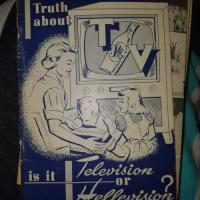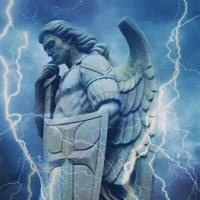TO READ: Psalm 65
February 5
Joy—or Fun?
... View MoreTO READ: Psalm 65
February 5
Joy—or Fun?
What joy for those you choose to bring near, those who live in your holy courts. What joys await us inside your holy Temple.Psalm 65:4
Some people say they are not interested in religion because they’re having too much fun. Should you, by chance, catch them in a somber moment, they may admit there is value to a faith life, but they don’t want it to interfere with their fun life. They may even concede that, toward the end of their days, they will probably take religion a little more seriously. After they’ve had their fun!
It isn’t that they are against a life of faith, it’s just that they see it as a hindrance to having fun. They do not necessarily deny the existence of God; in fact, they may even call on him when they’re in a fix. It’s his reputation as a somber old spoilsport that bothers them. They think he’s no fun!
God is certainly serious, and he warrants serious thought and deep devotion. Furthermore, the issues of life and death that God speaks to us about demand that we stop playing around and start getting our lives on track. But to imagine that these serious issues are antithetical to the deepest joy and enjoyment is to seriously misunderstand the essence of who God is and what he offers to his people.
The psalm writer, speaking realistically about his life, said, “Though our hearts are filled with sins, you forgive them all. What joy for those you choose to bring near” (Ps. 65:3-4). Indeed, there is no deep joy for people who have a guilty conscience, no matter how much fun they are having! There is unspeakable joy, though, for the person who knows release from guilt and the relief of forgiveness. And while many people have the impression that church is boring, the psalmist exclaimed, “What joys await us inside your holy Temple” (65:4). Ironically, it is the people who take God seriously enough to learn the serious deficiencies of the fun life who discover the joy of the forgiven life.
The joy that God gives is infinitely more durable and enjoyable than the “fun” that is available apart from him. Those who are forgiven discover that the world is full of people just like them who rejoice in the Lord’s goodness. The psalm writer celebrated this fact: “Those who live at the ends of the earth stand in awe of your wonders. From where the sun rises to where it sets, you inspire shouts of joy” (65:8).
When you have experienced God’s forgiveness and release from a guilty conscience, there is no shortage of people with whom to share your joy! And there is not a place on earth where you will not find reasons for rejoicing. Observe creation and you will see that created things “all shout and sing for joy” (65:13). That’s much better than just having fun!
🙏✝️👑
TO READ: Ephesians 2:11-18
February 4
External Religion
... View MoreTO READ: Ephesians 2:11-18
February 4
External Religion
Don’t forget that you Gentiles used to be outsiders by birth. You were called “the uncircumcised ones” by the Jews, who were proud of their circumcision, even though it affected only their bodies and not their hearts.Ephesians 2:11
Things aren’t always what they appear to be. We used to say, “A picture is worth a thousand words,” but we now know that, through modern technology, a picture may not be worth the film on which it was exposed. For example, when one television network broadcasting the New Year’s celebration in Times Square at the end of 1999 realized that the picture being broadcast included the massive logo of a competitor, they simply erased the logo from the screen and superimposed their own. Millions “saw” the new logo on their screens, even though it was not really there.
The ability to project what is palpably false has been developed into a fine art—and not just in the realm of advertising. It has been going on in religion for thousands of years. For instance, the classic definition of a sacrament is “an outward and visible sign of an inward and spiritual grace.” What appears is intended to convey what is actual. But historically, this has always been a problem. One example was in ancient Jewish culture.
The ancient Jewish people were rightly proud of their special place in God’s plan. He had established a covenant of love with them, initiated unique lines of communication with them, and had determined that through them all the nations of the world would be blessed (see Gen. 12:1-3; Rom. 3:1-2). They were given special promises, they received special mandates, they were granted special privileges. They were special, they knew it, and they did not hesitate to let other people know.
In some instances, their pride got the better of them. They demeaned others in order to exalt themselves. This was nowhere more apparent than in their attitude toward non-Jews, whom they called “the uncircumcised ones” (Eph. 2:11). Circumcision is hardly a topic of conversation for polite company, but they were referring to the fact that circumcision was both a sign and a seal of their special relationship with God. It was a sign that “signified” that they had “cut off” all that was displeasing to God. It was a seal that reminded them of God’s covenant promises and instilled confidence and assurance. It was an outward sign of an inward grace.
And therein lay the problem, for things were not always as they appeared—that is, the inward grace was not always present. Paul told the Ephesians that the Jews were “proud of their circumcision, even though it affected only their bodies and not their hearts” (2:11).
The believer is called to practice the externals of Christian faith as a symbol of the internal realities of faith in Christ. Signs signify, and symbols symbolize. Signs that signify nothing and symbols that symbolize a fiction are contradictions. Congruence is required between the symbol and the reality. The alternative is hypocrisy.
🙏✝️👑
TO READ: 1 John 2:1-6
February 2
Cheap Grace
... View MoreTO READ: 1 John 2:1-6
February 2
Cheap Grace
My dear children, I am writing this to you so that you will not sin. But if you do sin, there is someone to plead for you before the Father. He is Jesus Christ, the one who pleases God completely.1 John 2:1
Dietrich Bonhoeffer, a young Lutheran pastor in Germany before World War II, fiercely opposed the policies of the Nazis out of profound Christian conviction. Because of this, he was captured by the Gestapo, imprisoned, and eventually executed in April, 1945, shortly before the prison camp where he was held (Flossenburg) was liberated by the Allied forces. He died a martyr.
In his well-known book The Cost of Discipleship, Bonhoeffer deplored what he termed “cheap grace.” He defined “cheap grace” as “the preaching of forgiveness without requiring repentance, baptism without church discipline, Communion without confession, absolution without personal confession. Cheap grace is grace without discipleship, grace without the cross, grace without Jesus Christ, living and incarnate.”1 Bonhoeffer recognized this as an abuse of the biblical doctrine of grace—that most wonderful truth that God, out of a heart of love, reaches out to lost and sinful people, favors them in ways that they do not deserve, and grants them blessings that they could never earn. Bonhoeffer’s concern about cheap grace was right on target, and he lived and died in accordance with his convictions.
The apostle John expressed similar concerns when he wrote, “I am writing this to you so that you will not sin” (1 John 2:1). John was not promoting sinless perfection—he immediately added, “But if you do sin, there is someone to plead for you before the Father.” John wanted to remind believers that their sins are not forgiven in order that they may casually and contentedly continue in them. He wanted them to experience the freedom of victory over the sins that had formerly held them captive.
A reminder that Jesus “is the sacrifice for our sins” (2:2) should be sufficient to encourage believers to view sin seriously and to seek freedom from its bondage. Who can sin without remorse when he remembers that the penalty for sin is death and that Jesus assumed our penalty in that most horrendous of deaths, crucifixion?
But how do we enjoy this freedom and victory over sin? John suggests two foolproof methods. First, out of love for the Lord Jesus we embark on a lifestyle characterized by obedience. “Those who obey God’s word really do love him” (2:5). Second, we intentionally adopt the Lord Jesus as our role model. “Those who say they live in God should live their lives as Christ did” (2:6).
No one, least of all Dietrich Bonhoeffer, would suggest that doing these things is easy. Look where obedience and following Jesus took Bonhoeffer! But if we are to avoid the abuse of God’s grace, we must accept the disciplines of discipleship.
There is nothing cheap about God’s grace—it is costly, both for Christ and for us! Yet it has great worth.
Dietrich Bonhoeffer, The Cost of Discipleship.
🙏✝️👑
TO READ: Hebrews 2:5-15
January 31
A Perfect Leader
... View MoreTO READ: Hebrews 2:5-15
January 31
A Perfect Leader
It was only right that God—who made everything and for whom everything was made—should bring his many children into glory. Through the suffering of Jesus, God made him a perfect leader, one fit to bring them into their salvation.Hebrews 2:10
After Nazi Germany surrendered in 1945, the war in Europe came to an end amid scenes of well-earned jubilation. Shortly thereafter, a general election was held in the United Kingdom. Winston Churchill and his Conservative party were roundly defeated in that election—Churchill was ousted from office. Given his exemplary leadership during the war, Churchill’s defeat was a stunning reversal. Many in the British electorate had been swayed by a cartoon in one of the major newspapers which showed a pistol with a finger on the trigger and the caption, “Whose finger on the trigger?” The unmistakable inference people drew was that Churchill was a great wartime leader but he could not lead in peacetime. The man in the street was saying, “Don’t put Winnie back in power. He’ll get us into another war.” He was seen as the perfect leader for war but not for peace. They may have been right, because the demands on a leader vary according to circumstances. A lot depends on who is being led and what they are being led into.
“God—who made everything and for whom everything was made—” saw his creation ruined by the Fall (see Gen. 3). He determined, nevertheless, that he should “bring his many children into glory” (Heb. 2:10). Doing so involved dealing with their sin, defeating the awesome power of the devil, and leading people into eternal salvation. For that, “a perfect leader” was needed.
For these objectives to be achieved, a perfect sacrifice for sins had to be made. So a leader without blemish, with all the necessary attributes of leadership, who was willing to suffer death for us (2:9), had to be found. Jesus, the perfect Son of God, was the one. It was necessary that he “became flesh and blood by being born in human form. For only as a human being could he die, and only by dying could he break the power of the Devil who had the power of death” (2:14). This is why Jesus was born. “Only in this way could he deliver those who have lived all their lives as slaves to the fear of dying” (2:15).
Churchill was regarded by many as a perfect leader for wartime but not for times of peace. But Jesus was a perfect leader for all time. He was the right leader for the greatest of all wars, fought and won at the Cross. And he is certainly the only one who can lead people into the eternal peace that comes through being rescued from the fear of death. Jesus is the perfect leader. Follow him!
🙏✝️👑
TO READ: Psalm 89
January 29
The Throne
... View MoreTO READ: Psalm 89
January 29
The Throne
“I will establish your descendants as kings forever; they will sit on your throne from now until eternity.”Psalm 89:4
In the year 1215, King John of England traveled outside London to Runnymede, on the banks of the River Thames, and signed the Magna Carta. He had to! His barons had told him that if he did not sign, he would be in big trouble. They were tired of his heavy taxes, his ineffective leadership, and his less than spectacular rule. So they forced him to sign. In doing so, King John severely curtailed the traditional powers of the monarchy. Many people date monarchical decline from 1215.
Political systems now favor democracies over monarchies. Given the abuses of power by the latter, there is much to be said for the former. But as thrones and empires have been toppled, respect for the majestic has all but disappeared. This may not be politically significant, but it does have spiritual implications.
In the days of the Old Testament, kings were anointed by prophets and the trappings of their reign and the splendor of their person were often seen as reflections of the glory of the Lord. Even the extravagance of their palaces, their vestments, and their inordinate wealth were regarded as evidence of divine favor. The queen of Sheba was overwhelmed by Solomon’s splendor. He had built for himself “a huge ivory throne and overlaid it with pure gold. . . . No other throne in all the world could be compared with it” (2 Chron. 9:17-19). From this splendid platform, Solomon ruled his vast empire. He was powerful, splendid, and majestic.
Solomon’s reign, part of David’s dynasty, came to an end. His throne is lost, and his empire has long been divided. But God’s throne is “founded on two strong pillars—righteousness and justice” (Ps. 89:14), and he promised King David, “I will establish your descendants as kings forever; they will sit on your throne from now until eternity” (89:4).
When David’s dynasty collapsed, was the promise rendered null and void? Not at all! Hundreds of years later, a humble girl in Nazareth was told by an angel, “You will become pregnant and have a son, and you are to name him Jesus. . . . The Lord God will give him the throne of his ancestor David. And he will reign over Israel forever; his Kingdom will never end!” (Luke 1:31-33). One day, Mary’s son Jesus will sit on his everlasting throne in his eternal kingdom. Unlike Solomon’s throne, we do not know what Jesus’ throne is made of—but we do know that it is majestic! Even more important, though, is the one sitting on the throne—he will be the focus of attention! He will be marvelous, majestic, and magnificent. And we will be overwhelmed with the glory and the majesty (see Rev. 4).
🙏✝️👑
TO READ: Luke 1:38-45
January 25
Believing and Blessed
... View MoreTO READ: Luke 1:38-45
January 25
Believing and Blessed
“You are blessed, because you believed that the Lord would do what he said.”Luke 1:45
The emperor Constantine chose as a tutor for his son a learned man named Lactantius. Lactantius said this about the idea that the earth is not flat:
Is there any one so senseless as to believe that there are men whose footsteps are higher than their heads? or that the things which with us are in a recumbent position, with them hang in an inverted direction? that the crops and trees grow downwards? that the rains, and snow, and hail fall upwards to the earth? And does any one wonder that hanging gardens are mentioned among the seven wonders of the world, when philosophers make hanging fields, and seas, and cities, and mountains? The origin of this error must also be set forth by us.1
Clearly, geography was Lactantius’s weakest subject! That the earth was flat was an article of faith in those days, and it was a long time before some intrepid men believed otherwise. Those who did believe set sail, and they discovered the bounty of an undiscovered world. They believed and were blessed.
Zechariah had difficulty believing his aged wife would conceive, and he was struck with silence until the promised child was born. But when Mary was told that she, even though a virgin, would bear a son, her response was, “I am the Lord’s servant and I am willing to accept whatever he wants” (Luke 1:38). Mary’s faith was no doubt strengthened by the knowledge of Elizabeth’s pregnancy, and she went to visit her friend. In some remarkable way, Elizabeth’s baby in utero leaped for joy when he recognized the arrival of Mary and the significance of the baby she carried. Elizabeth said to Mary, “You are blessed, because you believed that the Lord would do what he said” (1:45). Mary, like the explorers of the new world, believed and was blessed.
Of course, there is a major difference between believing in a hunch and believing in God’s Word. And there is little similarity between believing a scientifically proven hypothesis and trusting a God-given promise. Yet that is what God calls his people to do. To the extent that we believe God, we experience the blessings of his promises.
The belief of the global circumnavigators required purchasing ships, fitting them out, recruiting a crew, and setting sail in a westerly direction with a view to arriving in the east! It was nothing short of lunacy to many of their friends and foes! But they were right. And they were blessed!
Men who wish to know the blessing of God need to believe what they profess to believe, trim their sails, and set out on a voyage of discovery. Should they feel a failure of nerve, the young woman of Nazareth may offer a role model!
Lactantius, Divine Institutes, Book III, Chapter 24.
🙏✝️👑
page=2&profile_user_id=114888&year=&month=
Load More


















